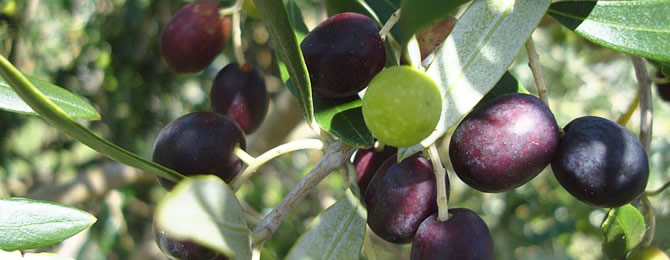Oils and Fats Update January 2022
Laurence Eyres and Mike Eyres
Lipid’s role in the immune system.
With Omicron blitzing the global health system its worthwhile to look at what could be done to bolster our own defence systems using predominantly diet. Nutrients of potential help are Vitamin D, selenium, zinc, and omega 3. We should be able to get selenium from consuming one Brazil nut per day, zinc from mushrooms, Vitamin D from the sun or a supplement if in Winter and omega-3 from salmon or quality supplements. There are some good publications around about diet and the immune system.
Recent studies have revealed that also other lipids—called lipokines—matter in the resolution of inflammation. The paradigm of these protective mediators is represented by the omega-3 fatty acids, which interact with the lipid sensor GPR120 with subsequent inhibition of TNF-α and TLR4-mediated inflammation
See Inform Magazine, (2021), December, vol.32, (10), pp6-9
The Complex Interplay between Lipids, Immune System and Interleukins in Cardio-Metabolic Diseases
Int. J. Mol. Sci. (2018,) 19, 4058; doi:10.3390/ijms19124058
Inflammation, Catherine Carver, (2017), Bloomsbury Publishing.
Algal oil production output
A broad automation project, for a joint venture by Evonik and DSM, enables initial annual production to meet about 15% of the industry’s current total demand for omega-3 oils.
Royal DSM, a global science-based company in Nutrition, Health and Sustainable Living, today together with Evonik celebrated the grand opening of their Veramaris 50-50 joint venture’s commercial-scale US$200 million production facility located in Blair, Neb. (USA). This new site has begun commercial production of algal omega-3 oil for salmon farming. This innovation helps to reduce the pressure on wild fish stocks, supports the aquaculture industry to sustainably meet the rapidly growing global demand for seafood, and enables healthier fish for the consumer.
Novel emulsion employed in chewable omega-3 supplement
A chewable DHA product being marketed by the Norwegian company Vitux AS employs an emulsion originally developed to construct models of breast implants. The “biggest difference from other chewables” is that “you can achieve a clinically relevant dose” and the “delivery system can hold up under a maximal load of omega-3s, within the payload range of a soft gel,” said Marc Van Maris, senior vice president of sales and marketing.
Full Story: NutraIngredients (12/22)
Dubious study shows supplements rancid
A report in the Guardian reports that 10% of fish oil supplements are rancid
In two articles about the fish oil industry, the Guardian looks at environmental concerns about Peru’s anchovy fishery and research showing that some fish oil supplements may have rancid oil. “If you go out and buy fish oil, there is at least a one in five chance of you getting an oil more oxidised than the recommended level,” said Ben Albert, a fellow at the University of Auckland.
Full Story: The Guardian (London) (1/18), The Guardian (London) (1/17)
Conducted over several years by Labdoor, which analyses vitamins and supplements based on criteria such as purity, label accuracy and nutritional value, the tests measured common US-branded fish oils, available globally, against international voluntary standards of rancidity.
Some fish oils recorded levels 11 times higher than recommended limits, which they do not report.
“It was fairly frequent,” said Dan Mark, Labdoor’s research director. “For us, they would start to smell and feel off.”
The rancidity is often masked by flavourings, which are added to most fish oils to reduce the fishy taste and smell. However, what they do not report is that these flavourings interfere with and negate the standard analyses of peroxide and anisidine value.
This newspaper then goes on to quote the flawed and disputed ancient report by Albert whose report was not peer reviewed and was shown to have errors in sampling, storage, and standard methods.
Fish oils are one of the most popular nutritional products, particularly in the US, where they are consumed by more than a third of adults who use dietary supplements. They are touted as an alternative to eating fish for getting omega-3 nutrients, and as beneficial for heart disease, improving brain function and strengthening metabolism. Many have flavourings added. A quick test is to check the capsules for eructation or fish burps.
Whilst this author has no doubt that some supplements are oxidised, then the advice is to buy from a reputable supplier with a brand whose literature backs up claims of purity and stability. This debate has gone on for years now and learnings are not being taken from mistakes made. Fish is an excellent source of many nutrients, however if not eaten regularly, then a trusted quality supplement is a good choice.
Olive Oil
California-based olive oil marketer Brightland has voluntarily removed a statement from its website alleging widespread olive oil adulteration in the United States after the North American Olive Oil Association (NAOOA) filed a complaint with an advertising watchdog group.
The NAOOA challenged Brightland’s claim that “most of the olive oil sold in the U.S. is rotten, rancid or adulterated,” causing nausea and stomach pains.
The claims appeared on Brightland’s website, social media pages and online articles in other outlets about the company and its founder, Aishwarya Iyer.
“After I found out that the majority of the olive oil Americans consume is rotten, rancid and adulterated,” Iyer told an online magazine, Los Angeles Confidential, “I wanted to create a solution that was U.S. made, beautiful, and authentic and that’s how Brightland was born.”
See Also: Five Years Later, UC Davis Report Still Sends Shockwaves
Brightland’s original claim likely stems from a 2011 report from the University of California-Davis that found 73 percent of the five top-selling imported “extra virgin” olive oil brands in the U.S. that were sold in California did not meet the International Olive Council’s standards for extra virgin olive oil.
“Sensory defects are indicators that these samples are oxidized, of poor quality and/or adulterated with cheaper refined oils,” the seven authors wrote.
The report was a follow-up to UC Davis’ controversial 2010 report that found that 69 percent of imported olive oil samples and 10 percent of California olive oil samples labelled as extra virgin olive oil failed to meet IOC standards.
UC Davis has since clarified that the results of the study “should not be used to characterize the quality or authenticity of olive oil currently available in California or elsewhere.”
While estimating the actual amount of olive oil adulteration and mislabelling in any market is very difficult and imprecise, small studies conducted in other parts of the country have yielded very different results. Any survey of the imported olive oils into NZ and Australia shows poor quality results. Buy local and enjoy the fresh taste of quality olive oil.
The good news about EV olive oil
A study published in the Journal of the American College of Cardiology found that adding at least half a tablespoon or more of olive oil to a person’s daily diet could lower their risk of death from heart disease by 19%. Olive oil was also associated with a 29% lower mortality risk for neurodegenerative disorders such as Alzheimer’s disease and Parkinson’s disease.
Full Story: United Press International (1/10)




